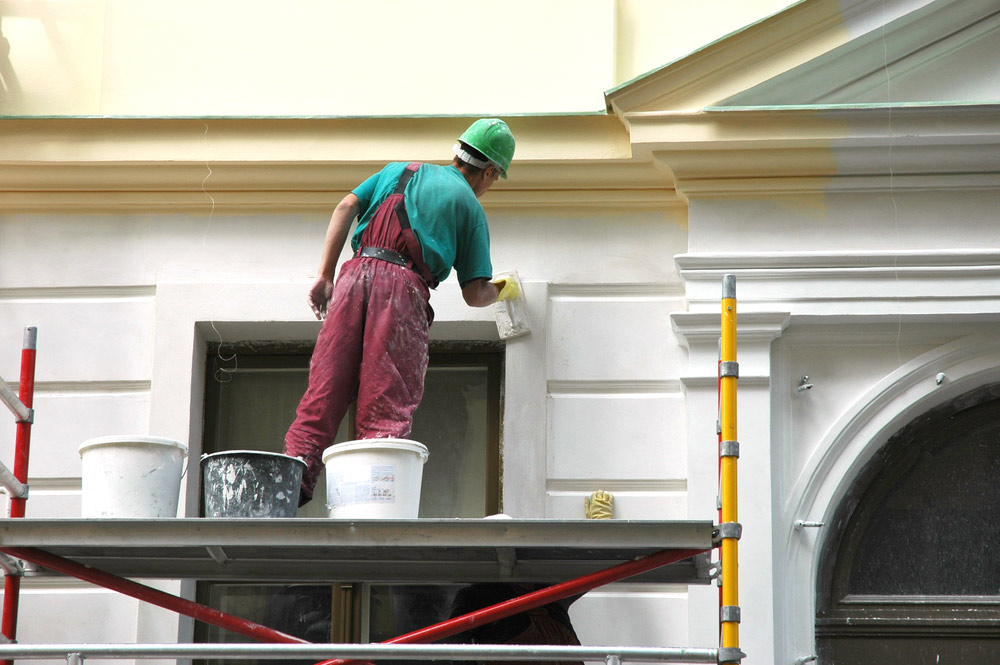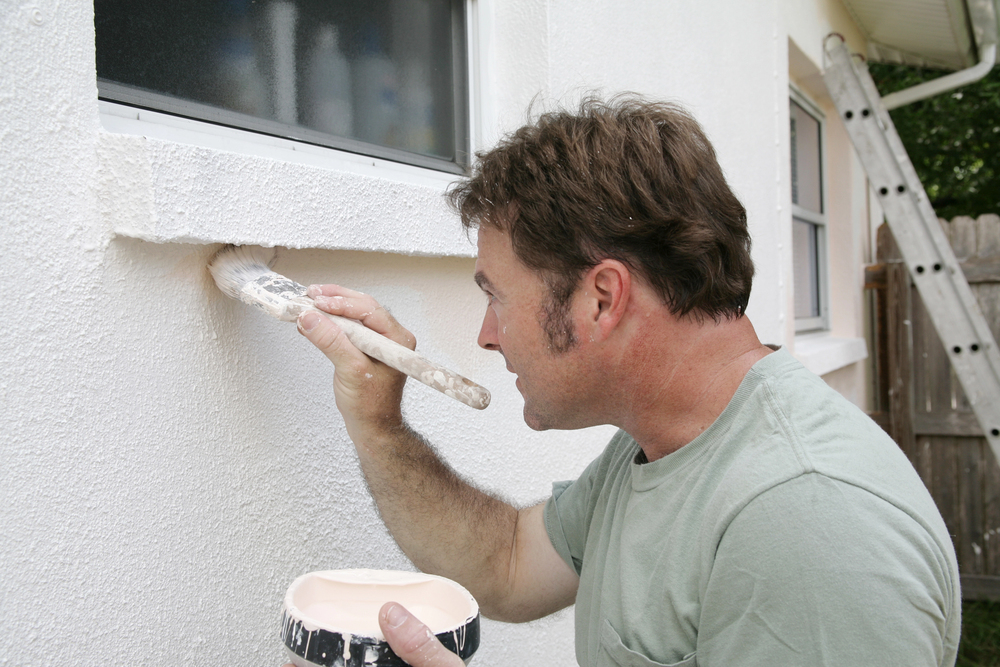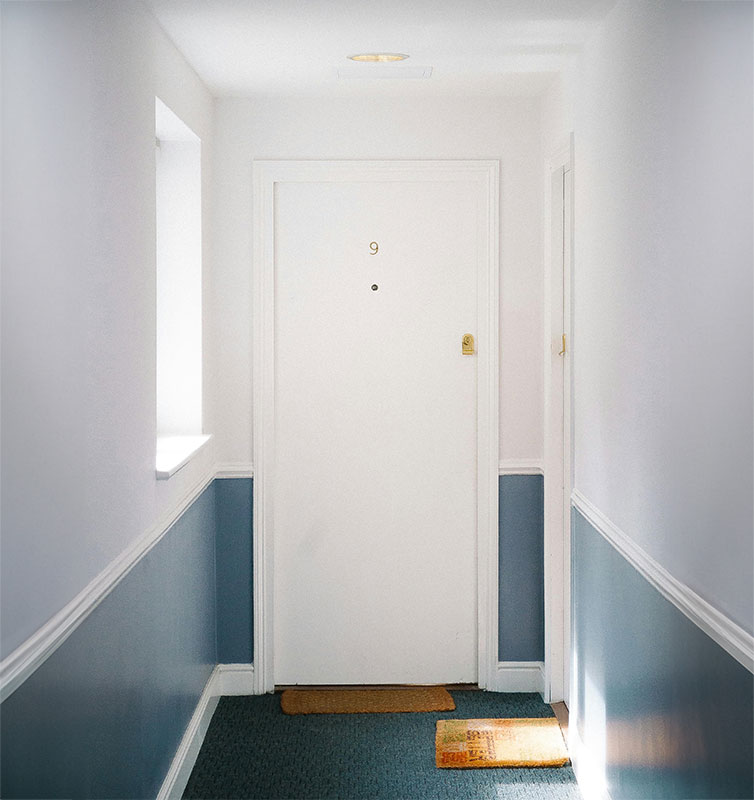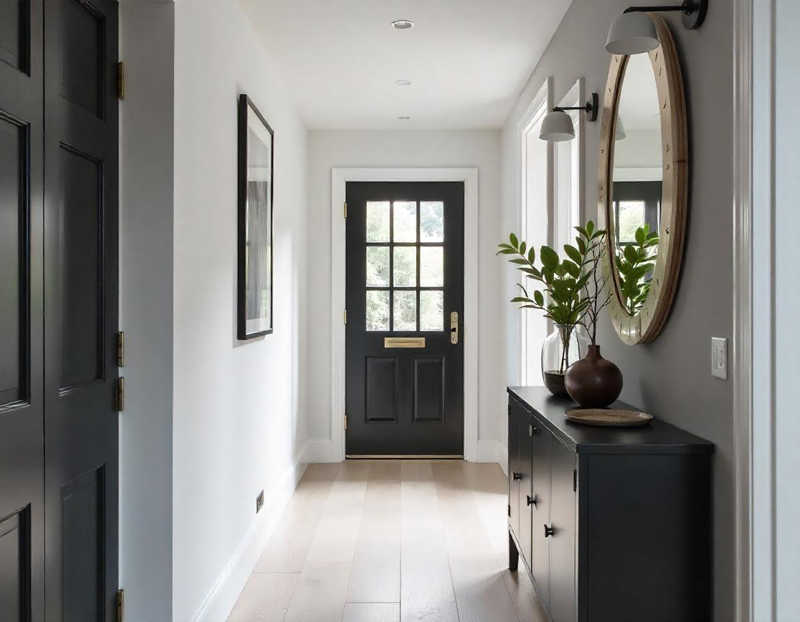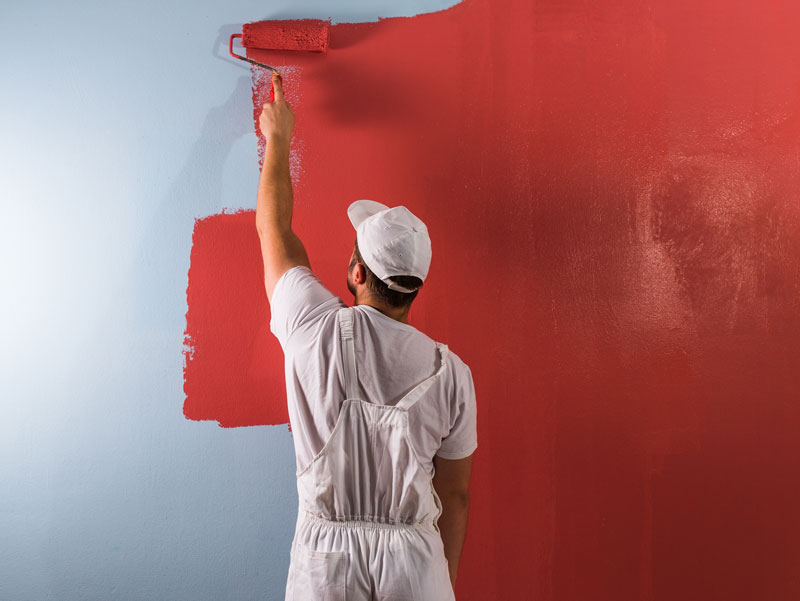How often should you paint the exterior of your home?
On average, most homes should be repainted every 5 to 10 years. This can vary depending on several factors, including but not limited to the outer material of the house or the paint quality of the last job, and the nature of the climate that your house is subjected to. As a rule of thumb, most homes should be repainted 5 to 10 years, but this is subject to change depending on materials:
Wooden Trims (framing, sills, soffits, fascia boards…): Repainting is usually done in 3-7 years time intervals due to the natural tendency of the wood to expand and contract, which makes the paint crack and eventually peel off, leaving the wood under protected.
Render/Stucco: You may generally have to repaint within a 5-6 year range. Paint adherence is good with render but the material itself can crack and need repair.
Aluminum or Vinyl Siding: These are sturdier materials and may only need attention after 5-10 years depending on the climate conditions.
Brick: A painted brick can withstand the exterior elements for 10-20 years, with the right preparation and quality of paint.
Signs That a New Paint Job Is Needed
Even if each of the timeframes above establishes a baseline from which you may work toward, there are some signs that you need to pay attention to which indicate your house may need repainting earlier:
Fading: With time, your paint will fade, mostly in direct sun on the sides of the house where the UV light is most intense. It is at this point if the colors start looking dry that a repaint should be considered.
Cracks or Peel: This is a clear sign that the paint has lost adhesion to the surface. Once the paint starts to peel, it does not serve its purpose effectively at all and the base surface becomes vulnerable to the weather, resulting in wood rot or brick deterioration.
Caulk Has Hardened or Has Developed Cracks: Caulk is meant to be flexible, expanding or contracting with your home. If it becomes hard or starts to crack, it can no longer properly seal gaps, allowing moisture to seep in and damage your home’s structure.
Mold, Mildew, Or Water Stains: These kinds of stains may mean that the paint is no longer protecting the house as it is intended to do, and therefore is a cause of concern. Such stains are not only unattractive but also threaten the integrity of the paint and the mechanisms blocking the paint.
Chalkiness: If you notice a chalky residue on your hands when you rub them across the surface of your home’s exterior, it’s a sign that the paint is breaking down and needs to be replaced.
FAQs on Exterior House Painting
Is it possible to make the exterior paint last longer?
Yes, definitely! Methods such as power washing, caulking, repairing damages and cleaning the surface of the house from dirt and mildew can increase the longevity of paint on the surface of the house. Using high-quality paint designed for your specific exterior material is also crucial.
Should I repaint before I see any visible damage?
Yes, it is advisable to paint before any visible damage can be detected. Damage that can be sustained if one waits too long to paint can end up being more costly to repair. Painting preemptively can spare you such services and therefore save you money in the future.
How do environmental factors influence painting frequency?
The frequency of repainting homes is heightened in those that are located in areas that have extreme weather conditions. For example, houses that are located on coasts can suffer the salt spray which can damage the paint quickly.
Keeping an eye on your home’s exterior and addressing issues early can prevent costly repairs down the road. Regularly scheduled repainting not only keeps your home looking fresh but also protects it from the elements, ensuring it remains in good condition for years to come.
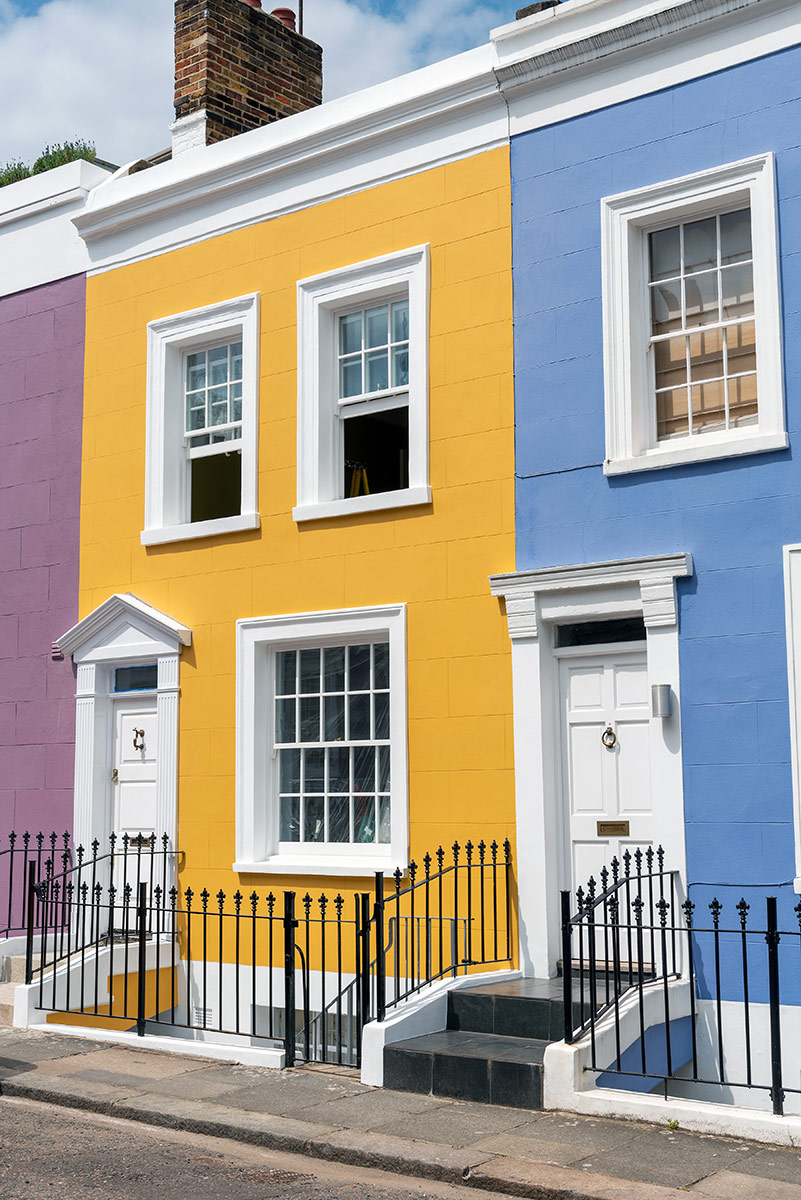
What's the best time to paint the exterior of a house UK?
The best time to paint the exterior of your home is during mild weather conditions, that is preferably in spring and autumn in temperate regions. It is during this season that one does not experience either hot or cold temperatures, which may affect the adhesion of the paint to the substrate as well as how it cures. Paint can dry too quickly in high heat, leading to an uneven finish, while cold weather can prevent it from drying properly, making it more susceptible to peeling and cracking.
How do I choose the right paint color for my home's exterior?
In the case of the exteriors of a house, the exterior paint color chosen should match the style of the house, the colors of surrounding houses, and the climate of the area. Lighter colors can emphasize the size of a house; darker shades are bolder and more of a contemporary nature. It is also wise to apply
the samples to different areas of your house and to note their effects at different times of the day.
Is it necessary to prime before painting?
Priming is an important step, especially when painting on a new surface or changing color. It is for the same reason that a primer is used, with its purposes being to promote bonding and establish a consistent surface for the paint thereby extending the surface's lifespan. An existing coat, in good condition, may not warrant a priming coat, but on nearly any other occasion, it is an omission that is hard to make.
How can I tell if the previous paint job used oil-based or latex paint?
A trick in finding out whether your home’s exterior is coated with oil or latex paint is to take a cotton ball soaked with rubbing alcohol and rub it over the painted area.If the paint comes off, it’s latex; if it doesn’t, it’s oil-based. Knowing this is important because latex paint can typically be applied over oil-based paint, but the reverse is not true without proper preparation.
What should I do to prepare my home for painting?
Proper preparation is key to a successful paint job. This step involves washing the area to get rid of impurities such as dirt, mildew or any paint that is chipping off; fixing damage where any gaps could be dealt with by caulking and patching; and applying primer when necessary. Ensuring that the surface is smooth and clean will help the new paint adhere better and last longer.
Can I paint over mold or mildew?
No, painting over mold or mildew is never an option. These should be effectively scrubbed off prior to any painting since this will not fix the problem at hand and in many cases, will only aggravate it. Mildew and mold are not just external problems; they burrow under the paint making the paint to eventually peel and bubble. A solution of bleach and water, or a commercial product should be applied to clean the areas affected by mold before one even thinks of starting the paint work.
How many coats of paint do I need for exterior painting?
The number of coats you will apply depends on the type and the color of paint used as well as the texture of the surface. Usually, it is recommended to apply two coats for maximum protection and coverage. But when there is a very deep color or a very light color being applied, a third coat may be necessary for uniformity in the final appearance.
Should I hire a professional or do it myself?
DIY painting is a good alternative when the idea is to cut costs, but it has its drawbacks including the amount of time it is going to take as well as the tools and expertise necessary to carry out the work. If you have any areas of your home that are very high or deep and difficult for you to paint, or if you are looking for an excellent finish that will not peel off and require lots of prep work, it is usually more economical to engage the services of a professional painter. Professionals can ensure that the job is done safely, efficiently, and to a high standard.
These additional questions and answers should help you feel more confident in planning and executing your next exterior painting project, whether you choose to do it yourself or hire a professional.
FOR RESIDENTIAL PAINTING AND DECORATING IN LONDON PLEASE CALL OUR FRIENDLY TEAM ON 020 8949 2553

